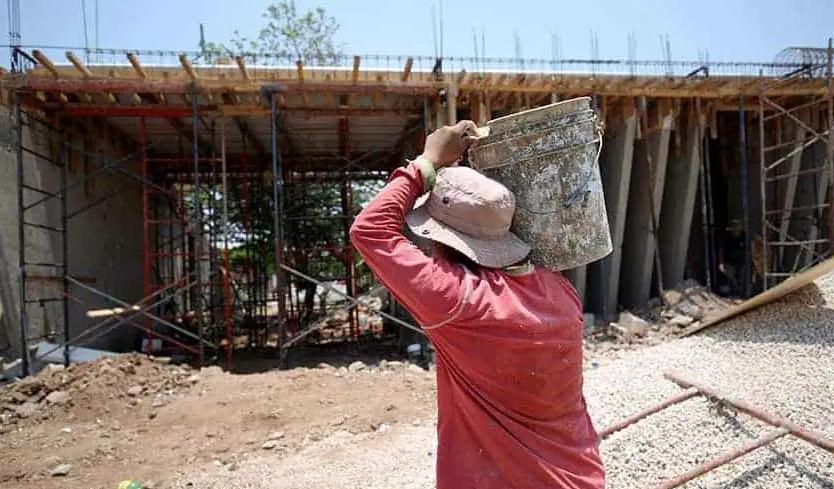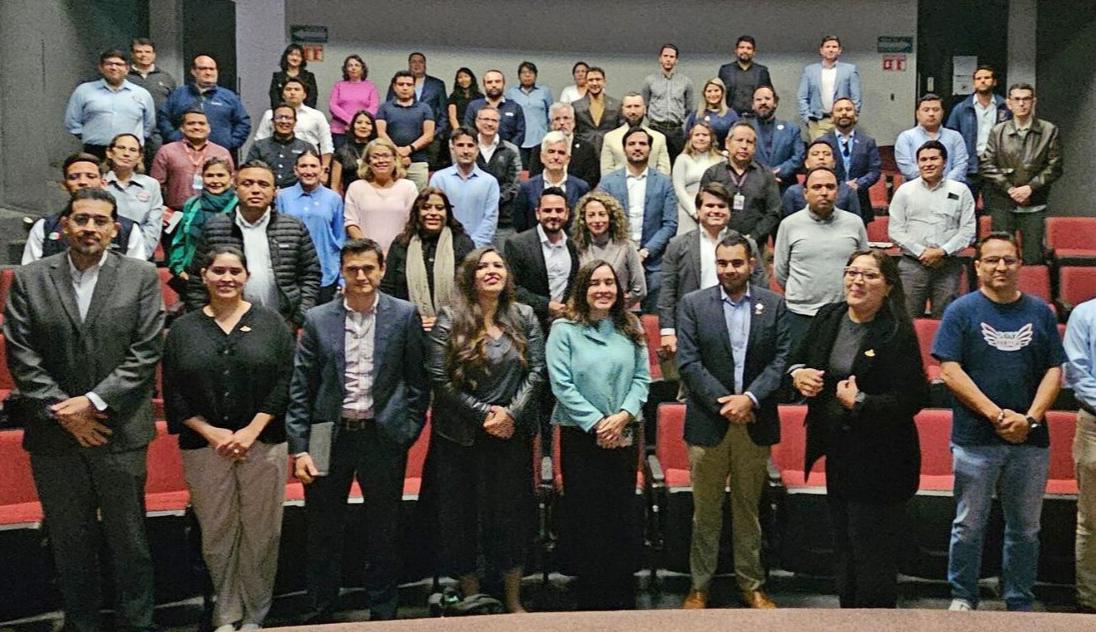GENERAL SITUATION IN MEXICO

Weekly Review I July 2, 2025





Weekly Review I July 2, 2025







• The 940- page package has passed an initial vote in the United States Senate and is now in a marathon amendment session; leaders hope to approve it before 4 July, but several Republican senators worried about the national debt may still vote against it.
• The Congressional Budget Office says the bill would raise United States deficits by about 3.3 trillion dollars over ten years. News of that estimate pushed up 10-year United States Treasury bond yields and briefly cooled stock prices.

• By locking in the 2017 tax cuts and adding new defence and border spending, the bill injects extra public money into the economy just as growth is slowing. That could keep United States inflation slightly higher in 2026-2027 and leave the Federal Reserve less room to cut interest rates.
• A remittance tax is still in play. The House version calls for a 5% charge on cash transfers sent abroad, while the latest Senate draft lowers it to one percent. Even at one percent, Mexico— which received about 64.7 billion dollars in remittances in 2024— would lose roughly 650 million dollars a year in household income and could see more transfers move to informal channels.
• Made-in-America tilt: the bill and related amendments seek stricter United States-content rules and faster phase-outs of wind, solar and electric-vehicle credits; this could cut demand for Mexican batteries, wiring harnesses and solar parts.

• Who benefits: United States defence contractors and border-technology suppliers stand to gain from new funds; high-income taxpayers and many small businesses keep lower tax rates.
• Who feels pressure: Mexican exporters of solar panels, batteries and other clean-energy parts, because the bill cuts many Inflation Reduction Act incentives that have been driving demand.
• Families in Mexico that rely on formal remittance channels, if any tax survives the final negotiations.
• Border trade: Extra wall segments, sensors and staff could make cargo inspections tougher. Factories in Baja California, Chihuahua and Nuevo León should plan for longer crossing times and higher transport costs.
• Senate passage hangs on two or three swing votes; any big change sends the bill back to the House, so keep an eye on last-minute edits to the remittance and clean-energy sections.
• Markets will stay jumpy until a final deficit figure and border wording are public; rating agencies could comment within days of a vote.
NEAR-TERM STEPS FOR MEXICO-FACING LEADERS:
– Stress-test sales forecasts for a 1-5 % drop in remittance-fuelled spending.
– Build at least a one-day buffer in cross-border shipping schedules.
– Re-check investment plans in electric-vehicles and renewables that count on United States incentives.
– Review dollar funding needs; higher United States bond yields often lift borrowing costs for Mexican firms.
SOURCE: CNN
Background:
• US Treasury’s sanctioned CI Banco, Intercam Banco, and Vector Casa de Bolsa for allegedly laundering money for Mexican cartels involved in fentanyl trafficking.
• The sanctions, under the Fentanyl Sanctions Act and FEND Off Fentanyl Act, block US transactions, accusing the institutions of enabling millions in illicit funds and chemical purchases from China for cartels like CJNG and Sinaloa.
• Mexico’s Secretary of Finance and President Sheinbaum rejected the claims, citing no evidence.
• Furthermore, the National Banking and Securities Commission (CNBV) announced that the firm Álvarez & Marsal took temporary control of the administrative functions of the three financial institutions, according to Latinus.

• CIBanco announced that Visa suspended all international transactions linked to its services, notably affecting its CICash Multicurrency card
• CIBanco criticized Visa’s abrupt suspension as premature, arguing it violated the Treasury’s 21-day grace period for cutting ties.

Credit rating agencies have taken action:
• Standard & Poor’s downgraded CIBanco’s rating to speculative grade and ended its contract, citing serious risks following the U.S. allegations.
• Fitch also downgraded CIBanco.
• While some experts argue there is no clear proof of wrongdoing, the reputational and operational damage is escalating quickly.
• CIBanco has informed customers that affected card purchases may be reimbursed in local or original currencies, depending on the case.
• The move tensions US Mexico relations, risking financial disruptions and complicating USMCA talks and the 2024 security agreement.
• For instance, Secretary of State Marco Rubio announced visa restrictions for family members of the banks.
• Mexico views the sanctions as unilateral, potentially escalating disputes over trafficking and security cooperation.
SOURCE: EL ECONOMISTA
• BILL FOR DISCUSSION WITH DECREE PROJECT FOR THE PREVENTION AND IDENTIFICATION OF OPERATIONS WITH ILLICIT RESOURCES
Presented by: Joint Committees on Justice and Legislative Studies
Objective: Strengthens anti-money laundering and counter-terrorism financing efforts by clarifying definitions, updating thresholds using the UMA, expanding oversight powers, mandating automated monitoring, training programs, and introducing risk-based approaches.
Status: Approved, sent to the Chamber of Deputies
• BILL FOR DISCUSSION WITH DECREE PROJECT TO ISSUE THE NATIONAL GUARD LAW
Presented by: Justice Committee
Objective: Establishes the National Guard as a permanent, professional public security force composed of military personnel with police training and trusted civilian staff for technical and administrative roles. It outlines recruitment, command structure, duties, disciplinary actions, and the National Defense Secretariat’s responsibilities for its development and operation.
Status: Approved, passed to the Senate.

• BILL WITH DECREE PROJECT TO AMEND ARTICLE 123 OF THE CONSTITUTION
Presented by: Deputy Manuel de Jesús Baldenebro Arredondo
Objective: Reduces the maximum workweek to 40 hours over five days, limits night shifts to six hours, sets a five-hour maximum for workers under 16, and grants at least two rest days per five days worked. The reduction will be phased in gradually over five years.
Status: Published in the Parliamentary Gazette
• BILL FOR DISCUSSION WITH DECREE PROJECT TO ISSUE THE NATIONAL LAW TO ELIMINATE BUREAUCRATIC PROCEDURES
Presented by: Joint Committees on Governance; Economy; Legislative Studies
Objective: This law seeks to simplify and digitize procedures and services across all levels of government, strengthen public technological capacity, eliminate bureaucratic costs, and promote transparency and efficiency
Status: Approved, referred to the Federal Executive


TDuring the “Forum for the Implementation of the 40-Hour Workweek,” the president of Index Zona Costa BC, representing Tijuana’s export manufacturing industry, presented the organization’s proposals regarding the reform. He highlighted the potential impacts, including increased overtime costs (rising between 28–34%), the need to hire more staff, and investments in automation technology. Index proposes a gradual implementation from 2026 to 2030, starting with a one-hour reduction per year until reaching 40 hours, with a sixmonth period for the first change. Additional proposals include fiscal and labor incentives, updates to income tax tables, reducing the impact of social security contributions, and eliminating the non-deductibility of wages and benefits. They also suggest adopting hourly work schemes and standardizing mixed and night shifts. The association emphasized avoiding new labor or tax burdens to ease the transition and reaffirmed its commitment to protecting workers’ conditions while supporting a model that balances employer and employee needs.
SOURCE: DIARIO TIJUANA


At the Binational Forum on Semiconductor Collaboration held at Arizona State University, the Government of Sonora showcased its leadership in advancing North America’s semiconductor supply chain through the Sonora Sustainable Energy Plan. Spearheaded by Governor Alfonso Durazo, the plan emphasizes specialized talent development, educational innovation, and the use of clean energy—positioning Sonora as a strategic player in the global semiconductor industry. Representatives from Pro Sonora, including Investment Promotion Director Ángela González and head Mónica Pinto Serrano, highlighted the importance of building a resilient, competitive, and sustainable binational ecosystem. They stressed that collaboration between government, industry, and academia is essential to meeting a growing global demand for microchips, attracting investment, and generating high-quality jobs in the region.
SOURCE: EL ECONOMISTA


Coahuila is rapidly emerging as Mexico’s new hotspot for advanced manufacturing, driven by strategic investment promotion through Pro Coahuila, world-class infrastructure, and a focus on key sectors such as electromobility, agribusiness, and clean technologies. With a strong industrial base, a skilled workforce, and five international border crossings connecting directly to Texas, the state offers unmatched logistical advantages and legal certainty. Led by Sofía Delgadillo, Pro Coahuila provides comprehensive support to investors and integrates small and medium-sized enterprises into global value chains through supplier development and partnerships with clusters and universities. The state is also investing in future-oriented industries like IT and renewable energy, backed by dual-education programs and technical certifications. Major infrastructure projects—from border modernization to new industrial parks— further position Coahuila as a strategic destination for nearshoring and sustainable industrial development in North America.
SOURCE: MEXICO INDUSTRY


Thor Urbana, a leading real estate investment and development firm in Mexico, has announced a new industrial park project in Apodaca, Nuevo León, with an investment of over 2.4 billion pesos. TU Park Apodaca II will span 1.5 million square feet of gross leasable area and cater primarily to logistics and light manufacturing companies, complementing the ongoing construction of TU Park Apodaca I. This expansion underscores Thor Urbana’s commitment to delivering world-class industrial spaces in high-demand markets, as Nuevo León strengthens its position as a top destination for foreign direct investment (FDI) and nearshoring. In Q1 2025 alone, Nuevo León attracted $2.7 billion USD in FDI, ranking second nationally. Strategically located, Apodaca offers strong connectivity, specialized talent, and a competitive business environment. TU Park Apodaca II is part of Thor Urbana’s broader national strategy, which includes over 4 million square feet of industrial assets across Mexico’s most dynamic regions, reinforcing the company’s long-term vision for innovation and market leadership in industrial real estate.
SOURCE: MEXICO INDUSTRY



The Querétaro Aerocluster launched its 2025 strategy with the addition of new members and a focus on key areas including talent development, diversity and inclusion, sustainability, and supply chain diversification. During its First Informative Session held at the Polytechnic University of Querétaro (UPQ), the Aerocluster outlined goals and progress across its four main commissions. These include promoting specialized talent, fostering inclusive workplaces, and advancing environmental sustainability within the aerospace industry. Efforts also center on strengthening local suppliers and integrating more small and medium-sized enterprises into the aerospace value chain. Additionally, the Promotion and Visibility Commission unveiled plans to enhance national and international recognition of Querétaro as a leading aerospace hub in Latin America, reinforcing collaboration among academia, industry, and government.
SOURCE: MEXICO INDUSTRY



Mexico City Mayor Clara Brugada announced the investment of 3 billion pesos for the construction of 16 new Utopías—public spaces known as Transformation and Organization Units for Inclusion and Social Harmony—across all city municipalities. The project will cover 700,000 square meters and aims to promote inclusion, reduce violence, and combat addiction by providing accessible, community-centered areas. Brugada emphasized the success of existing Utopías in transforming life in vulnerable neighborhoods and encouraged continued citizen input in choosing future locations. Authorities confirmed they are in dialogue with residents expressing concerns, ensuring that the selection process will involve public participation.
SOURCE: MILENIO

Mexico City Mayor Clara Brugada announced the investment of 3 billion pesos for the construction of 16 new Utopías—public spaces known as Transformation and Organization Units for Inclusion and Social Harmony—across all city municipalities. The project will cover 700,000 square meters and aims to promote inclusion, reduce violence, and combat addiction by providing accessible, community-centered areas. Brugada emphasized the success of existing Utopías in transforming life in vulnerable neighborhoods and encouraged continued citizen input in choosing future locations. Authorities confirmed they are in dialogue with residents expressing concerns, ensuring that the selection process will involve public participation.
SOURCE: PERIÓDICO ENFOQUE

Tonalli inaugurated its first solar panel plant in Cuautlancingo, Puebla, backed by a USD 17.3 million investment. The new facility will produce 200,000 panels annually and create 200 direct jobs.
Automaker JAC has announced a $160 million investment to expand its assembly plant in the state of Hidalgo. The initiative will create 1,000 new direct jobs and increase production capacity to 60,000 vehicles
per year, all proudly labeled “Made in Mexico.” The expansion also sets the stage for the implementation of Industry 4.0 manufacturing processes by 2026.
NBHX is investing over 450 million pesos in its Aguascalientes plant to boost production of high-end interiors for electric and premium vehicles. The expansion will multiply its output by seven by 2030, reinforcing the region’s role as a strategic hub for advanced automotive manufacturing in North America.
SOURCES: CLUSTER INDUSTRIAL, MEXICO INDUSTRY
AVOIDING COSTLY MISTAKES IN RULES OF ORIGIN CERTIFICATES
Errors in your USMCA Certificate of Origin can lead to denied tariff benefits, customs audits, and supply chain disruptions. This guide breaks down the most common certificate mistakes—such as incorrect classification or blanket statements—and how to correct them. Learn why proper documentation is critical for maintaining compliance and avoiding financial penalties in North American trade.


A turnkey operation is more than just a facility— it’s a fully integrated business solution that helps companies launch in Mexico with speed, precision, and minimized risk. This blog outlines how turnkey strategies streamline real estate, hiring, permitting, and operational setup, making it easier for international manufacturers to scale efficiently in a new market.
VISIT OUR WEBSITE TO EXPLORE OUR FEATURED BLOG POSTS, EBOOKS, AND CASE STUDIES PRODENSA.COM/INSIGHTS